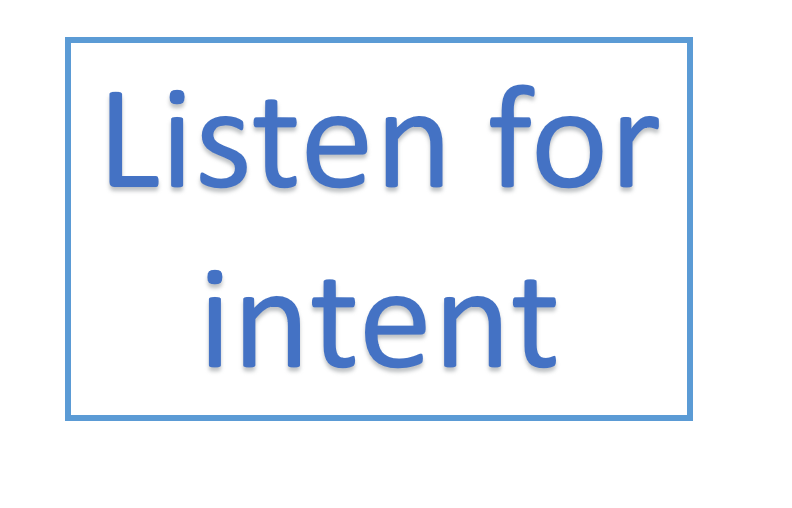Tag: telling the truth at work
Your experiences are valid
I recently had a pain in my body so strong that it kept me awake for four nights. I didn’t know what was causing it. When I saw my doctor, she didn’t seem to know what the problem was or think it was a serious issue. For a moment, I started to question if the sleeplessness and severity of the pain was really a big deal. As the appointment was wrapping up, she mentioned that I could get a test before I left.
When the test results came in, it showed a definitive cause of the pain. The treatment was just a strong dose of Ibuprofen and the issue eventually resolved itself. I was elated. I felt relieved to know what the problem was and that there was a simple treatment. But much more than that, I felt vindicated. The test results were undisputable, and proved to the doctor that I wasn’t exaggerating or having a psychosomatic issue, imagining my discomfort.
The reason for this story that is both too vague and too personal is that there was pain. Whether or not the test uncovered the reason for the pain, there was pain. I was awake for four nights and there was no reason for me to try to convince myself that that experience was any different from what it was. And yet when my physician didn’t seem concerned, I started to question it.
It is not uncommon for other people to dismiss our pain because it isn’t theirs. It doesn’t mean the pain isn’t there. The analogy to work is that when people are inside toxic workplaces, it is very easy for their concerns to be brushed aside.
If your coworkers, friends, or family downplay your descriptions of harassment, verbal abuse, retaliation or other serious work issues, take a step back to consider their motivations. When people respond unempathetically, it might be because they don’t know how to process your suffering and therefore try to squash the topic that is making them uncomfortable. Another possibility is that their egos are trying to protect them from imagining what it would be like to be in your position. They may have a belief that they are too smart or too strong to “let” themselves be abused, and use that belief like a magic charm to ward against it. A third possibility is that they are resigned to the fact that workplaces are frequently toxic and there aren’t great options for dealing with it.
Regardless of the reasons why others may respond poorly, you don’t need external validation for your lived experiences to be true. Trust yourself. Your experiences are valid.
The unideal workplace
When I finally lost my idealism about work, I was embarrassed that it took so long.
In the early years of my career, I believed that the workplace would be a fair and rationale environment. When situations occasionally arose that led me to think, “that’s a waste of company money” or “it is unethical to treat people like that,” I was indignant.
It just seemed…wrong. And shocking, because it was the opposite of my worldview that people are mostly honest, hard-working and strive to do the right thing.
Over time, I realized that I had been extremely naïve. When I began noticing all the ways that workplaces enable bad behavior, I grew jaded.
It was many years later before I changed my beliefs again. My more pragmatic outlook these days is that while people don’t always act ethically, most organizations aren’t riddled with corruption.
I realize that it is human nature to prioritize self-interest. Sometimes the pressure of meeting deadlines or budgets or unrealistic expectations leads people to make choices that they wouldn’t have made if they felt like they had better options.
Even people at the highest levels of organizations who sometimes seem truly rotten can at least be understood, if not sympathized with. They may be driven to succeed at all costs because of insecurity or by a lack of empathy. They may be pressured by their stakeholders. Or maybe they just don’t have the capacity as a human being to treat other people with respect – and that’s sad.
It’s much less surprising or disappointing to me now when I see bad behavior. Instead of focusing on the wrongness of it, I try to widen my perspective to include the possibility that the people involved are doing the best they can with the circumstances they’re in. It’s not ideal, but it’s real.
Intent vs. Words
 Not long ago I attended a City Hall meeting where a contentious topic was being reviewed. The council members were voting whether to continue pursuing a specific site to build a homeless shelter for men. The chambers were packed with community supporters on each side of the issue.
Not long ago I attended a City Hall meeting where a contentious topic was being reviewed. The council members were voting whether to continue pursuing a specific site to build a homeless shelter for men. The chambers were packed with community supporters on each side of the issue.
For much of the meeting, three of the elected officials were in favor and four were opposed. When it was time for each council member to explain their position, it was fascinating to listen to those who opposed the shelter. They each emphasized their compassion for homeless people but wanted more data, more options, and more time to think about the issue.
If you took their words at face value, it sounded fine. But those of us paying attention to the issue for many months knew that they already had the data and options that they referenced. Instead of honestly saying “no, I oppose the shelter because it’s controversial” they gave excuses and hid their true intent behind words that meant the opposite of their actions.
It was easy to spot their deception because they have a clear motive for trying to appease everybody: they want to get reelected!
In the workplace, it isn’t always easy to tell when someone’s intentions are different from their words. For example, if you ask your manager for a raise and they say they need to ask their leadership team whether budget is available, they are deflecting the responsibility to other people. It would be simple to tell you later that they would have liked to increased your salary, but it wasn’t possible. You would have a hard time learning whether that was true or not.
If you get the sense that someone is hiding their true intentions behind words that are meant to convince you of the opposite, you can always ask them to clarify. A great way to do this is to paraphrase back to them what you think they mean – not what they are actually saying.
Be Wary of Charismatic Leaders at Work
 Throughout my career, there have been business leaders that inspired me to do my work with a deeper sense of purpose. I looked forward to their presentations at employee conferences and meetings because their speeches moved me. They clearly described their vision and how important it was for the team to achieve it. I left these events with fresh ideas for my projects and re-energized to complete them.
Throughout my career, there have been business leaders that inspired me to do my work with a deeper sense of purpose. I looked forward to their presentations at employee conferences and meetings because their speeches moved me. They clearly described their vision and how important it was for the team to achieve it. I left these events with fresh ideas for my projects and re-energized to complete them.
Time and time again, I was amazed at how smart and articulate they sounded. They described our mission in simple, easy to remember points, and gave us compelling reasons why we should care. They didn’t just make me think – they made me feel.
I give them credit for improving my strategies and plans because they made it easy for me to connect my work to the bigger goals of the organization. They strengthened my ability to get buy-in from other teams and leaders because I could show how my idea supported the top-down direction we were all supposed to follow.
So…great, right?
Not exactly.
Time and time again, these charismatic leaders disappointed me.
One leader dazzled me with his ability to get a room full of hundreds of people to enthusiastically commit to his vision. He got us to volunteer for additional work, and the vivid image of success that he described kept us focused for months. So it was confusing when after we delivered what he’d asked us to do, that nothing came of it. He didn’t take our front-line work and use his executive position to implement the goal we worked for.
I don’t know if his priorities had changed, if he lost interest in the goal, or if he simply lacked the ability to execute his vision. Plenty of people are very good at convincing others to support their ideas but lack the ability to push their projects to completion. Some of them have poor organization skills or get stuck when there are details to manage.
Unfortunately, this man was such a talented communicator that he got everyone excited about other things and moved on. The wasted time and potential was forgotten about.
Other charismatic leaders that failed me were more like empty vessels – appealing on the surface but not much inside. They think their only role is to imagine an outcome and inspire their followers to agree with them. Then they expect other people to figure everything else out because that kind of work is beneath them.
You can recognize this type of leader by their charming, magnetic personalities and the crowd of admirers that surround them. They will mesmerize employees with their strategic vision and big picture ideas but you won’t find them connected to the tactics, execution, or implementation.
 The danger of this type of leader is that when people rally around an outcome without understanding the plan to achieve it, bad things can happen. Loyalty to the leader and an emotional attachment to the end-goal can cause workers to take unethical or even illegal actions. They might think the ends justify the means. Or, their fierce loyalty may convince them that they aren’t doing anything wrong.
The danger of this type of leader is that when people rally around an outcome without understanding the plan to achieve it, bad things can happen. Loyalty to the leader and an emotional attachment to the end-goal can cause workers to take unethical or even illegal actions. They might think the ends justify the means. Or, their fierce loyalty may convince them that they aren’t doing anything wrong.
Charismatic leadership isn’t at fault for every corporate scandal. Volkswagen’s emission-cheating has been blamed on a fearful, authoritarian climate led by ex-CEO Martin Winterkorn – but that is a negative leadership style for a different blog post.
There are, however, charismatic leaders at all levels of organizations and it isn’t necessarily the CEO that employees blindly follow. Imagine a beloved executive getting staff excited to break a sales record without having a specific plan for achieving the goal. This happens all the time! Lower level managers might be tempted to cut corners, and what starts out as a gray area can turn into misuse of funds, which then becomes fraud. An entire department can be swept along in unethical or illegal activity.
This isn’t to say that every charismatic leader is bad. The website Make A Dent Leadership has an interesting article by Shelley Holmes about positive and negative aspects of charismatic leadership.
As for me, I can only think of one such leader that I would happily work for again. And…I can’t help but wonder…if someday this person will disappoint me, too.
Your Truth at Work
 Making good decisions about our words and actions is part of having – and keeping – a job.
Making good decisions about our words and actions is part of having – and keeping – a job.
Whether working with customers, coworkers or employers, there’s a certain amount of self-editing that is required to get along with people and sufficiently meet the expectations of the people that pay you.
Choosing to not say exactly what you’re thinking is a good decision much of the time. Spewing unfiltered frustration damages relationships and your reputation.
At the other end of the spectrum, censoring yourself too much isn’t constructive either. Constantly saying what your manager wants to hear, when it isn’t what you believe, is exhausting. Going along with unethical decisions out of fear probably won’t erase your fear – but will add feelings of guilt. Holding back when you have an opportunity to contribute deprives both you and your organization of your ability to make an impact.
Modifying your behavior at work to the extent that you aren’t being true to yourself isn’t healthy. It’s stressful and depressing.
In some workplaces, there may be room for adjustment. Maybe you can say what’s important to you by approaching the topic in a way that reduces the risk of upsetting the people you work with. Dale Carnegie’s How to Win Friends and Influence People has great tips for situations like this. Taking a Dale Carnegie class is even better because you get to practice these skills.
If attempting to influence the organization doesn’t work and you’re currently not able to get a different job, you still have control over something: your truth. You might need to smile and nod for self-preservation, but you can acknowledge to yourself what you see, hear, and believe. Don’t let them steal your truth.
Your Ethics Can Get You Fired
 Maintaining a positive reputation at work means that sometimes you don’t speak up when something’s wrong. We all know the sayings, “don’t rock the boat” and “pick your battles.” When the issue goes beyond a gray area, or a slight bending of the rules of the employee handbook, you’re in a tough position.
Maintaining a positive reputation at work means that sometimes you don’t speak up when something’s wrong. We all know the sayings, “don’t rock the boat” and “pick your battles.” When the issue goes beyond a gray area, or a slight bending of the rules of the employee handbook, you’re in a tough position.
Several years ago I had a conversation with two mid-career lawyers about sexual harassment in the workplace. Both of them said that they would not tell their firm’s HR department or file a complaint if they were sexually harassed. They were sure that they would be fired in retaliation and black balled in the legal community, preventing them from getting a new job in their field.
I asked what they thought about the moral obligation to report issues like this. Because if nobody takes a stand against harassment and discrimination crimes, then they will keep happening, both to the current victim and others. The two lawyers didn’t hesitate to say they wouldn’t ruin their careers over it.
Over the years I’ve heard many variations of that conversation, but this stood out because the people were lawyers. They understand the law, their rights, and the process to seek justice if wrongfully terminated.
They also understood the personal consequences of reporting a crime and decided it isn’t worth it.
That’s bleak, and probably why we admire some whistleblowers who expose large scale crimes in their workplaces. Calling out illegal activity is a huge personal risk. Up until the point when whistleblowers are national heroes talked about in the media, they might be considered by their company’s peers and managers to be rats, tattlers, trouble makers, whiners, complainers, and ungrateful losers who should have been happy they had jobs in the first place.
They might be called all of those things and also be freshly unemployed. With a bad reputation that makes it difficult to be hired elsewhere.
Other people told me stories about being instructed by their managers to lie to investigators about crimes they witnessed. One man admitted that he lied under oath in trial court because his supervisor demanded that he do so or else lose his job.
Where do you draw the line between self-preservation and ethics?
I’m guessing most of us think we would make the ethical choice if we were in situations like that. But when people are actually in a position to lose their livelihoods, I doubt it is such an obvious decision.
I’m glad there are some people brave enough to sacrifice their personal wellbeing to stand up to workplace crimes.
Choosing Who to Confide In at Work
 The people you work with are often either the best or the worst parts of your job. When those relationships are positive, it can make you more productive, successful, and happier.
The people you work with are often either the best or the worst parts of your job. When those relationships are positive, it can make you more productive, successful, and happier.
When the other parts of your job aren’t going well, having trusted colleagues to confide in can help you get through the day.
Whether they are work friends, your staff, your boss, your peers, people in organizations that work with your organizations, Human Resources – anyone involved with your work – think twice before sharing confidential information. Telling the right person your secrets can strengthen your bond and make the relationship more important to both of you. Telling the wrong person can damage your reputation and career.
Who to trust with specific information can depend more on the individual’s personality than their* position in the company, but there are some common factors to keep in mind.
When You’re Looking for a New Job but Haven’t Accepted an Offer Yet
Your boss: Almost always no.
If you have a positive relationship with them, you might think they would appreciate knowing that you intend to leave before you turn in your two weeks’ notice. However, generally level-headed people can still take it personally, as though you are leaving them not the job. They might also be resentful that they will have to deal with hiring and training a new person and managing your workload until the position is filled. If your news overlaps with performance review timing, you could be punished for disloyalty.
There are only two circumstances when telling your manager may be better than keeping it to yourself. The first is when your boss has explicitly encouraged you to grow your career by taking advantage of job opportunities. The second is when you’ve witnessed your manager supporting other team members who have left the team.
Your employees. No.
Telling your staff that you plan to leave will make them worry about their own jobs.
Your peers. Usually not.
Even your work friends may be jealous or not want you to change the dynamic in your organization. You might feel guilty withholding this information, as though you are being a bad friend. It is more useful to remember that a lot of things can go sideways until you have a signed offer in your hands. It’s much better to wait and share the good news once you’ve landed a position.
The exception is when you need a work reference and can count on a peer to help sell a recruiter on your capabilities.
Health Issues
Your boss, your employees, and your peers: It depends on their personality.
For every person I know who had workplace support through a significant illness, I know of another person who was made miserable during the experience, or even pushed out of the company.
If you’ve got doctor-ordered treatments that take you away from the office or cause obvious physical changes, you don’t have a choice about whether to keep it a secret or not. With other illnesses, it can be difficult to know if you will be supported or punished. The best you can do is evaluate the level of empathy your management has shown for you and others.
You may be able to confide in your manager but keep it a secret from your peers and staff.
Human Resources Issues
Your boss: If your workplace requires it and/or they will actually help you.
If there’s something going on that violates company policy, it’s not paranoid to consult the employee handbook to understand your obligations. If for example you witness employee theft, the policy likely requires you to step forward or else be punished if caught.
If you are thinking about going to your HR department about a workplace issue, remember that they are there to protect and support the organization first. Anything your report is likely to be shared with your manager.
It’s tough to be in a situation where reporting an issue may be the ethical thing to do but puts your job at risk. The media reports on big whistle-blower cases and employee lawsuits. We don’t hear about the other thousands of instances when an employee is forced out or fired for calling attention to a problem.
Your employees: Nope.
Your peers: Probably not.
Unless you and your peers are collectively talking about an issue, it is in everyone’s interest to keep it to yourself. You don’t want to drag other people into situations that could put them at risk or get you in trouble for revealing information that you’ve been asked not to talk about.
Other Personal Stuff
Your boss, your employees, your peers, and everyone else in this world: Share with caution.
When you have Other Personal Stuff impacting your life, of course you need to talk about it with others. Talking helps alleviate some of the burden, and unless you’re a robot, you need some support.
Just be careful who you confide in. People that are otherwise pleasant and even caring towards you might react in unhelpful ways.
Of course if you have any doubt that they might share your personal information with other people: avoid! It’s not worth it. People love to gossip. Don’t become their story of the week.
Many people do not deal with Other Personal Stuff very well. It might be too uncomfortable for them, or they don’t know how to respond. That sucks, but it is kind of understandable. Some people just don’t realize that when in doubt, any of these work: “I’m sorry to hear that. That sounds stressful. Are you ok?”
Worse than clueless but benign people, though, are people who respond so badly that they make your situation worse. Bad responses might be downplaying or denying your situation, victim-shaming, or telling you how you should be coping. On top of whatever issue you’re experiencing, then you have to deal with being blamed or shamed, feeling betrayed, or feeling alone in a situation where you need help from others.
Unfortunately, it can be hard to tell who is unsafe to confide in until it is too late. Friends and family members are just as likely to respond badly as your coworkers. So don’t spill your guts. If there’s someone you feel compelled to share your story with, get a feel for their reaction before you provide the details.
With all people and all topics
Remember that once you tell anyone personal information, you lose control of it and who else they might tell.
*I’m using the plural for he/she/his/her because using “he” alone is gender-unfriendly and writing “he or she” is annoying.
Speaking our truth at work
 On the surface, it seems like being honest at work should be the default. I mean…nobody wants to work with liars. Or think of themselves as liars! But people lie all the time at work, for many reasons.
On the surface, it seems like being honest at work should be the default. I mean…nobody wants to work with liars. Or think of themselves as liars! But people lie all the time at work, for many reasons.
At the top of the list is job survival. It is no secret that many managers want to hear that their strategy is intelligent, their plans make sense, the business is generating a positive return on investment, the employees are happy and think their bosses are smart and nice…and on and on, whether it is true or not. Even the managers that profess to want to hear the truth usually don’t, unless you can package the message in a way that puts any blame on someone else and keeps their egos intact.
Then there are the lies that make spending time with coworkers easier. He says, “Your presentation was great” and thinks to himself, “not so much. She says, “I think you’ll do fine in the annual review” when she has heard that the leadership team thinks that you make too many mistakes. He says, “No problem” to the coworker that missed his deadline, when really he is burning up with anger and resentment.
People also lie at work because telling the truth can be uncomfortable for everyone involved. A few days ago I was in a coffee shop and overheard a woman talking on the phone to someone who was either a peer or a staff person she oversees. She said something like, “I’m frustrated because when I’ve asked when you will deliver the report, you tell me you don’t know because you’re too busy.” Her tone of voice sounded exasperated but polite, and her volume was low. She continued to say, “I had to do a lot of extra work because I didn’t have the information I needed in your report. Will you set my expectation for when I will receive it?”
As I’m listening to her, I’m thinking “Good job! You’re expressing yourself honestly and asking for what you need, and you’re doing it in a respectful way.”
Then it got sad and ugly.
But not because she became angry or disrespectful.
It got sad and ugly because she started apologizing.
Apparently the person on the other end of the phone did not receive the message well. The coffee shop woman started saying “I’m sorry. I don’t mean to be rude.” And then spent the next ten minutes pacifying the person she was speaking with. When they finally hung up, I’m not sure she ever got an answer as to when the report was going to be delivered!
Boo.
She wasn’t being rude. She could have been a case study for how to communicate a difficult message to people at work until she backed down as soon as the other person got defensive.
It is often challenging to say the truth at work, especially when you’re pointing out a mistake or asking for something to change. But if you don’t say what you need, you are never going to get your damned report!
Let’s take a moment to reflect on what happens when we deny our truth:
- We make our authentic selves smaller
- We demean the part of ourselves that wants to live with integrity
- We reinforce the habit of denying our truth in order to make other people and ourselves more comfortable
It doesn’t have to be this way. I’ve been working on being truer to myself for several years, and as with anything, it gets easier with practice.
It also feels really good to think back on tough conversations and be proud of myself for communicating honestly instead of holding back out of fear or because I was worried I wouldn’t say exactly the right words. I reminded a friend who was planning to have a conversation with a woman who had disappointed her that “you can tell the truth without being an asshole!”
If you want to speak your truth more often, you might be interested in this: Martha Beck recently emailed a newsletter called “Speak Your Truth. No Matter What.” to promote her upcoming telecourse called The Integrity Cleanse.
This is not one of those times when I get a commission for referring people to products or services. I just love Martha Beck and credit her books and courses with helping me create a better life for myself. I would be thrilled if you also found value in her wisdom. Truth!


Recent Comments